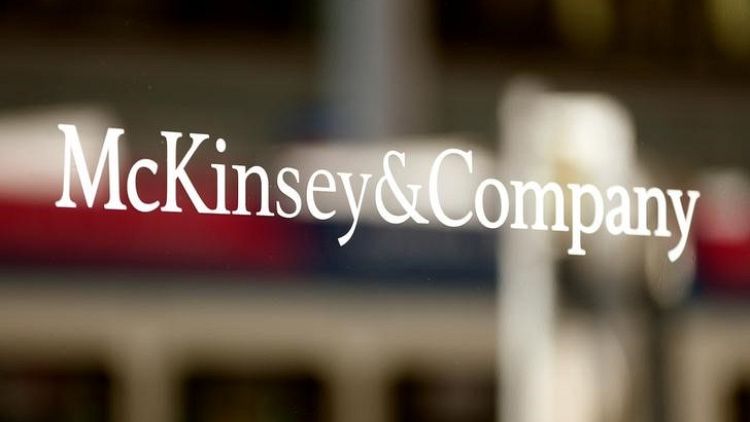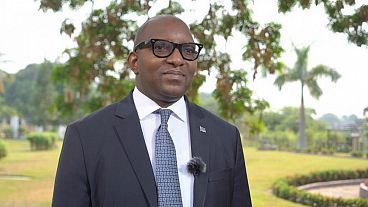By Joe Brock
JOHANNESBURG (Reuters) - McKinsey's new global head will on Monday apologise to South Africans for work the firm did with friends of scandal-plagued former president Jacob Zuma, an ill-fated deal that tarnished the reputation of the world's biggest consultancy.
McKinsey has lost most of its clients in South Africa since it emerged last year it had partnered with local consultancy Trillian in order to win a 1.6 billion rand (£90.14 million) contract with state power utility Eskom in 2016.
Trillian was then controlled by the Guptas, three brothers who are under investigation over accusations that they used their friendship with Zuma to fraudulently win government contracts worth hundreds of millions of dollars.
Zuma and the Guptas deny any wrongdoing. Police have a warrant of arrest out for at least one of the Gupta brothers.
South Africa's national prosecutor is pursuing a case over the contract between McKinsey, Trillian and Eskom which it says was unlawful and a "sham".
McKinsey denies doing anything illegal.
Kevin Sneader, who was appointed McKinsey's global managing partner in February, will make a speech in Johannesburg on Monday to "talk frankly and honestly" about the firm's failings.
"On behalf of McKinsey & Company, I sincerely apologise to the people of South Africa. We are deeply sorry," Sneader will say, according to a sample of the speech sent to Reuters.
"The trust of our clients and the public in South Africa is now, understandably, very low."
McKinsey said it will this week pay back the 1 billion rand ($74 million) in fees it received for its share of the six months work it did with Trillian at Eskom.
Some of the criticism McKinsey has faced is over the fee it charged for such a short period of work to a struggling state company that has fallen deeper into financial crisis since the consultancy's "turnaround programme".
McKinsey had previously defended its fee structure but the firm is now conceding that it overcharged.
"The fee was weighted towards recovering our investment rather than being in line with Eskom's situation. In that context the fee was too large," Sneader says.
McKinsey is among several multinational firms to have become ensnared in a far-reaching scandal that has outraged South Africans who have watched state resources being looted while millions remain mired in poverty.
"To be brutally honest – we were too distant to understand the growing anger in South Africa," Sneader says.
(Reporting by Joe Brock; editing by David Evans)



